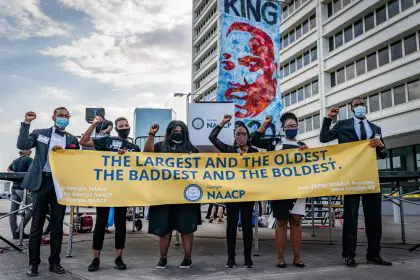Chemical manufacturing giant DuPont has recently agreed to pay a hefty fine of $480,000 as part of a settlement with the Environmental Protection Agency (EPA) regarding the release of benzene, a known carcinogen, from its facility in LaPlace, Louisiana. This settlement marks a significant step in addressing environmental concerns in a region often referred to as “Cancer Alley,” where predominantly Black and low-income communities have been disproportionately affected by industrial pollution.
The settlement details
The consent agreement, filed on Sept. 25, outlines the terms of the settlement between DuPont and the EPA. The EPA initiated legal action against DuPont after discovering alarming levels of benzene emissions during surprise inspections in April 2022. These inspections revealed that the air quality around the plant exceeded federal limits, with benzene levels reaching as high as 20,100 parts per million (ppm) from a waste tank vent, far surpassing the legal threshold of 500 ppm.
Health risks associated with benzene
Benzene exposure poses serious health risks, including drowsiness, dizziness, headaches and rapid heart rate at lower levels. Prolonged exposure can lead to more severe health issues, including leukemia, a cancer that affects blood-forming organs. The Centers for Disease Control and Prevention emphasizes the dangers of benzene, particularly for communities living near industrial sites.
DuPont’s response and future actions
In response to the EPA’s findings, DuPont has committed to installing new equipment aimed at preventing future benzene leaks. However, the company has disputed the EPA’s measurements, claiming that their own assessments indicated lower emission levels. Despite this disagreement, DuPont’s spokesperson, Daniel Turner, expressed satisfaction in resolving the matter, stating that there have been no reported health impacts on site personnel or the surrounding community.
Environmental justice in Cancer Alley
The DuPont facility is situated in St. John’s Parish, a key area within Louisiana’s industrial corridor, which has been plagued by high cancer rates among its residents. This region has seen a surge in civil rights lawsuits aimed at holding petrochemical companies accountable for their emissions and the subsequent health impacts on local communities. However, recent court rulings have complicated these efforts, as a U.S. District Court in Louisiana determined that federal agencies must prove intentional discrimination by polluters rather than simply demonstrating disparate environmental harms.
Community concerns and ongoing struggles
Local advocates for environmental justice remain skeptical of DuPont’s settlement. Robert Taylor, executive director of the Concerned Citizens of St. John, voiced his concerns, stating that the company has not made significant efforts to alleviate the pollution burden on the community. He expressed frustration over DuPont’s history of litigation while continuing to emit harmful pollutants.
Broader implications for industrial pollution
The situation in Louisiana is emblematic of a larger issue facing many communities across the United States, particularly those with predominantly Black and low-income populations. The ongoing struggles against environmental racism highlight the urgent need for stronger regulations and accountability for companies that pollute. The EPA’s actions against DuPont and other companies in the region are crucial in the fight for environmental justice.
While the $480,000 fine and commitment to remediate the LaPlace facility are steps in the right direction, the fight for clean air and justice continues for the residents of Cancer Alley. As communities push back against industrial pollution, it is essential for regulatory bodies to enforce stricter measures and for companies to prioritize the health and safety of the communities they operate in.
















